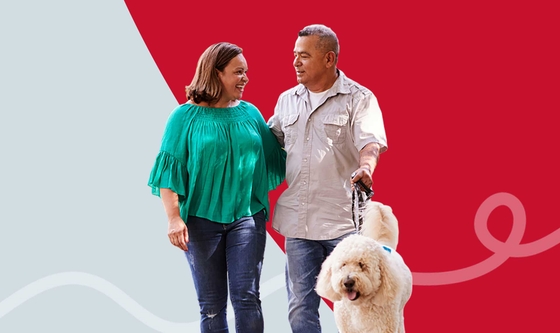
Peer Support Network
Welcome, find support in our online communities
Our online communities offer support and an opportunity to connect with others who truly understand what you're going through. Whether you are new to living with a heart condition or have been living with a heart condition for a while.
Safe and moderated online communities
Our groups are carefully moderated by the Heart Foundation to ensure a respectful, safe and supportive environment. Whether you're living with a heart condition, or caring for someone living with a heart condition, you’ll find a welcoming space to discuss your journey, share your challenges, and celebrate your victories.
Connect with others on a similar journey
Our peer support network is made up of two online communities.
- Our MyHeart MyLife online community is for adults (18 years and over) across Australia living with a heart condition, and their carers.
- Our Supporting Young Hearts online community is for adults aged 18-45 years living with a heart condition, and their carers, and offers the opportunity to connect with others at a similar stage of life.
How to join our communities
To join our communities you will need to answer all membership questions and group rules when logging in, otherwise your request will not be approved.
Membership questions
- Are you living with, or caring for someone with, a heart condition?
- This group is for people living in Australia over the age of 18yrs. Is this you?
- Please provide an email, (this is not used for marketing but in case the moderation team need to contact you for medical reasons).
- You must agree to our community group rules.
Group rules
Our online communities are governed by group rules to guide members on the conversations and behaviour expected of all members. Detailed rules will be listed to read and agree to prior to joining the group. Our moderation team uses these rules to manage the community and support conversations between group members.
- Be kind, respectful and stay on topic
- No medical advice
- Language & behaviour
- No self-promotion or advertising
- Defamation
- Protect privacy and respect copyright
- Be yourself
- Follow the group rules
- Seek help when needed
Benefits of joining our peer support online communities
- Ease feelings of social isolation: Connect with people who understand what you're going through and can validate your feelings and experience.
- Give and receive reassurance and support: Share your story and receive encouragement from others. Give back to others facing similar challenges.
- Gain valuable insights: Learn from shared experiences, and from our wellbeing support and Q&A with an expert series.
Join via Facebook today
Joining is easy. All you need is a Facebook account, then follow the links below to join our closed Facebook group (online community). Don’t forget to answer the membership questions so we can approve your membership. We look forward to you joining us online:
- Join our MyHeart MyLife community
- Join our Supporting Young Hearts community
Looking for more information on living well with coronary heart disease? Join our MyHeart MyLife support program.
What our community members are saying
This group has been just what I needed. So good to have people that put into words what I felt inside but couldn't express (mostly because I thought I was the only one feeling like I do)! I love being part of this group.
Edith, group member
Welcome all. We are here for you, to stand beside you on your heart journey.
Tim, group member
I have previously posted and have found that the participation and support from this group is amazing. I celebrated with the group the first anniversary and reflected upon the lifesaving surgery that I was privileged to receive from some amazingly talented professionals.
Bruce, group member
You might also be interested in...

Mental health and heart disease
Having a mental health condition can have a negative impact on your heart health and increase your risk of heart disease.

MyHeart MyLife
Your next step towards recovery and living well with heart disease
.jpg?width=560&height=auto&format=pjpg&auto=webp)
Do you have a Heart Story to share?
By sharing your heart story, you can help save lives. You can tell others about the warning signs of a heart attack, the importance of a Heart Health Check, or even what it’s like to live with chronic heart disease.